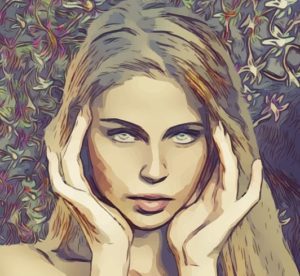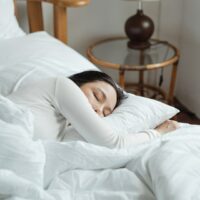Sleep Disorders
There are around 80 different types of sleep conditions. Sleep disorders are conditions that hinder your sleep or prevent you from getting peaceful sleep and, as an outcome, can trigger daytime sleepiness and other signs.
– You regularly experience trouble sleeping.
– You are frequently tired during the day.
– You have a reduced ability to carry out routine daytime activities.
Common sleep disorders like insomnia, narcolepsy, restless legs syndrome, and sleep apnea can affect every element of your life including your security, relationships, school and work efficiency, believing, psychological health, weight and the development of heart disease and diabetes. Not getting enough quality sleep can injure your lifestyle.
Not getting the correct quantity or quality of sleep results in more than just feeling exhausted. Drowsiness disrupts cognitive function, which can result in personality changes, memory impairment in people of all ages, learning impairments in children, and depression.
Frequently asked questions
Some of the signs of sleep disorders include irregular breathing, excessive daytime sleepiness, or increased movement during sleep. Other signs include difficulty falling asleep and an irregular sleep and wake cycle.
Some basic tips include:
Stick to a regular sleep schedule. Keep your bedtime routine and wake time same from day to day, including weekends.
– Avoid naps during the day.
– Avoid caffeine, alcohol and nicotine
– Stay active.
– Check your medications.
– Don’t put up with pain.
– Avoid large meals and beverages before bed.
Some lifestyle and diet changes can help:
– Yoga and meditation
-Do not drink alcohol, which can interfere with sleep.
– Physical activity and exercise can improve sleep
– Melatonin supplements
– Keep cool and dark environment.
Magnesium was the featured nutrient in a study published in the Journal of Research of Medical Science, that found that adding a supplement improved insomnia and sleep quality. Beans, seeds, nuts, tofu, bananas and whole grains are all good sources of magnesium.
Drinks that may help you sleep at night include:
– Valerian tea.
– Decaffeinated green tea.
– Chamomile tea.
– Herbal tea with lemon balm.
– Warm milk.
– Almond milk.
– Malted milk.
– Pure coconut water.
These are some of the foods and drinks to have before bed for a better quality of sleep.
– Almonds.
– Turkey.
– Chamomile tea.
– Kiwi fruit.
– Tart cherry juice.
– Fatty fish like salmon.
– Walnuts.
– Passionflower tea.
Key Terms
- Circadian Rhythms
- Melatonin
- Insomnia
Circadian rhythms are known as mental, physical, and behavioral changes that follow a 24-hour cycle. A circadian rhythm, or circadian cycle, is an internal, natural process that controls the sleep–wake cycle and repeats roughly every 24 hours. It can refer to any process that originates within an organism and responds to the environment. These natural processes are controlled primarily by light and dark environments and affect most living things, including plants, animals, and microbes.
Melatonin is a hormone that plays a role in sleep and is found naturally in plants and animals. The creation and release of melatonin in the brain is tied to the time of day. At night, it is released by the pineal gland located in the brain and has been associated with control of the sleep-wake cycle. It increases when it's dark and decreases when it's light. Melatonin production levels decline with age. It is also available as a supplement in oral tablet or capsule form. People use melatonin for sleep disorders, such as insomnia and jet lag.
Insomnia is a common sleep disorder. One can have trouble falling or staying asleep or getting high-quality sleep. This can happen even if you have the right environment and time to sleep well. It can disrupt your daily activities and may make you feel sleepy during the day. It's commonly associated with stress and anxiety and a poor sleeping environment that is noisy, hot, or cold. Lifestyle factors – such as drinking alcohol or caffeine before going to bed, jet lag, or late-night shift work can also be factors that bring on insomnia.
The Latest in Sleep Health
- All
- Sleep

Yoga For Sleep Disorders
Yoga Nidra, Asanas & breathing exercises offer holistic therapy for your mind Read More

Waking up with a headache or migraine
If you are waking up with a headache or migraine in the Read More

Natural Home Sleep Remedies
Sleep disorders are conditions that alter how you sleep. Natural home sleep Read More

Mouth Tape For Better Sleep & Healthy Mouth
Mouth tape forces nostril breathing, as Yoga breath control teaches. Nasal breathing Read More

Mindfullness Meditation For Sleep
Meditation can help to wind down and relax your mind and body Read More

Melatonin Rich Foods That Help You Sleep
Melatonin rich foods could help you sleep better by providing sleep-inducing melatonin. Read More

Gut health & sleep link
Your gut and brain communicate via the vagus nerve & hormones. The Read More

Ayurveda Herbs & Treatment For Sleep
Ayurvedic treatments with herbs, diet, yoga, meditation & lifestyle changes can help Read More

Acupuncture For Sleep Disorders
Acupuncture has been linked to improved sleep and insomnia. Significant improvements in Read More




